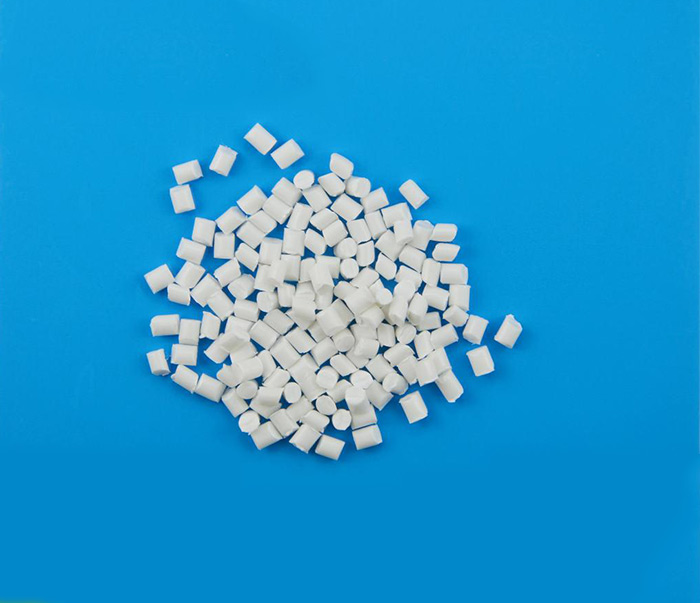Explanation of Jiangmen engineering plastics why modified plastics break in processing
For the cause of external impurities, check whether the dead corners of the equipment at each link of mixing and discharging are cleaned and whether there are impurities mixed; Try to add less broken materials or conduct preliminary screening on the broken materials manually; Remove impurities and add mesh and sheet number of filter screen; Try to cover the holes (solid cover or net cover) where sundries may fall.
The internal impurities are mainly caused by the severe carbonization caused by the process or equipment. The carbonized material is brought out into the strip and forms a broken strip under the effect of traction.
The material is poorly plasticized, the extrusion temperature is low or the screw shear is too weak, the material is not fully plasticized, showing material bumps, and broken strips are formed under the effect of traction; The low melting point additives (including EBS or pets) in the formulation system form poor plasticization and broken strips on the premise of weak screw shear or increased gap between screw and barrel and weak shear.
The physical properties of the materials are different or changed. The fluidity of the blending components at the same temperature is too different. Due to the fluidity mismatch or incomplete compatibility (including physical entanglement and chemical reaction), theoretically, this is called "phase separation". "Phase separation" usually does not appear in blending and extrusion, but mostly in injection molding. However, if the MFR difference is too large, the screw may appear broken on the premise of relatively weak shear. The viscosity of blending components changes. For the same material, if the MFR decreases and the hardness, rigidity and notch become larger, the molecular weight of this batch of materials may be larger than before, resulting in greater viscosity. Under the original processing temperature and process effect, poor plasticization may be formed. At this moment, it can be solved by increasing the extrusion temperature or decreasing the screw speed of the main machine.

The exhaust is not smooth, the processing temperature is too high, the screw part is sheared too strongly, or the screw part is overheated, forming the decomposition of some additives such as flame retardants, releasing gas. The vacuum does not extract the gas in time, and the gas is trapped in the strip, forming a broken strip under the effect of traction. The material is severely affected by moisture, and the processing water vapor is not timely vented and vacuum swept, so it is trapped in the strip and forms a broken strip under the effect of traction. The natural or vacuum exhaust is not smooth (including blockage, air leakage, and the gasket is too high), resulting in gas (or steam) trapped in the strip and broken strip under the effect of traction.
The material rigidity is too large, the water is too cold or there is too much water, the traction does not match, the material rigidity is too large, the water temperature is too low, there is too much water, the discharge of the machine head is very soft, and the water immediately becomes very hard. Under the effect of the traction does not match, a broken strip is formed. This phenomenon often occurs in PBT, PET fiber, PC fiber, as fiber, ABS fiber and other materials with very fast crystallization speed or high rigidity, especially when the small machine is tested. At this moment, the water temperature is improved and the excess water is reduced, so that the strips entering the pelletizer adhere to a certain softness, which can be solved.
Source: Jiangmen engineering plastics http://www.wywantong.com/
-
04-13
PVC Engineering Plastics: how PVC plastic pipes are formed
The forming process of PVC plastic pipes should start from the raw materials of PVC plastic granules, which can be divided into soft PVC and hard PVC according to the added amount of stabilizer, plast
-
11-12
What is the filling property of Jiangmen engineering plastics
What is the filling property of Jiangmen engineering plasticsIn recent years, PC modified plastics have developed rapidly in China, and its industrial system is gradually established and improved. Th
-
10-08
Jiangmen Engineering Plastics: how to classify Jiangmen engineering plastics?
How to classify Jiangmen engineering plastics? 1. Classification by application characteristicsAccording to the different application characteristics of famous plastics, plastics are usually divided
-
08-30
Application scope of PBT engineering plastics
PBT engineering plastics are widely used in electronics, car industry, office machinery and other fields. In Japan and the developed countries in Europe, PBT engineering plastics are mainly used in t